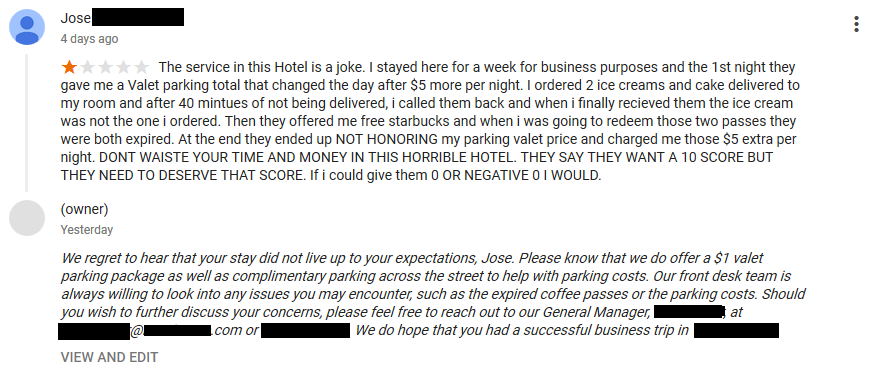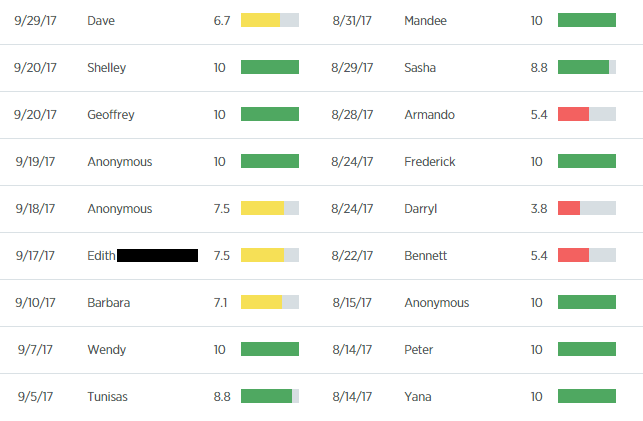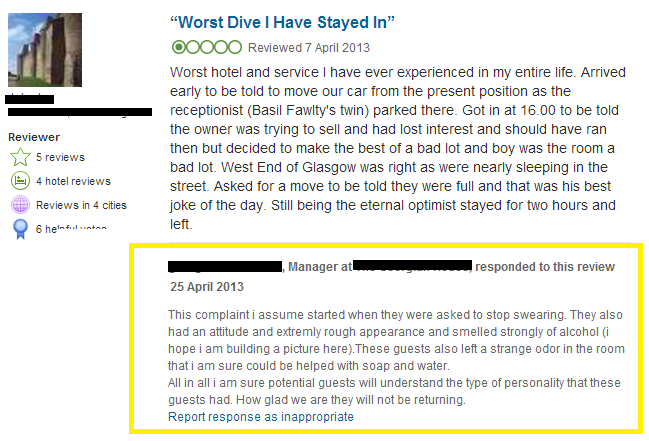When booking a getaway or business trip, travelers always consider the voices of their peers when selecting where to rest their head each night. According to TripAdvisor, 83% of travelers say that reviews help them select the correct hotel, 80% read at least 6 – 12 reviews prior to booking, and 53% will not commit to a booking until they have read reviews. That is over half of your potential guests who will not even book a room with you until they know what everyone else thinks.
User-generated online reviews have truly become the go-to source for information when booking hotels because users can get answers to their questions, as well as honest, unbiased feedback on the property. Is the staff friendly? Are the rooms spacious? Are the beds comfortable? Is the food decent? Additionally, responding to both positive and negative reviews shows your guests that you genuinely value their opinions, that your hotel can do better, and that you will actively strive to do so. With that said, there are many Online Travel Agencies (OTAs) out there, and it can be frustrating to know which to focus on.
Considering that 4 out of 5 potential guests are reading what their peers are saying about your property, responding to those peer thoughts in a tactful manner is crucial.
Which Hotel Review Sites Should You Be Monitoring
Currently, there are more than sixty OTAs in existence, and you certainly do not need to be monitoring each one. While it is important to have current information on each OTA as part of your hotel’s SEO strategy, today we will be focusing on four of the main OTAs: Booking.com, Expedia, Hotels.com, and TripAdvisor.
Expedia and Hotels.com
Expedia and Hotels.com both allow you to respond in Expedia’s Partner Central, though both OTAs have specific guidelines. Some of these are useful across all OTAs: maintain a professional tone, do not refer to other hotels or chains, and focus on the specifics of the individual review.
Some of their ‘things not to do’ can actually be useful to highlight when responding on other OTAs: do not market or promote your property, do not refer to promotional packages or rates, and do not ask the customer to contact you directly or visit your website. Highlighting, say, a valet parking package that you offer, could be useful information for a guest who did not like your parking fees. Mentioning your contact information allows you to take the conversation offline and better understand what went wrong with the guest’s stay, as well as shows future guests that you genuinely want to hear from them.

TripAdvisor
For TripAdvisor, they provide valuable insights on how you can better manage your listing, your reviews, and your business. Taking fifteen minutes to read through a few of their articles can greatly improve your knowledge on how your potential guests think!
Booking.com
On Booking.com, anything under 7.5 is typically a negative review, depending on the sentiment of course. If you are using a specific portal, however, like Marriott’s guestVoice, it will flag the reviews in different colors, which is a wonderful way to discern whether or not the review requires your immediate attention. Reviews above 8.5 are green (positive), reviews between 8.4 and 6.5 are yellow (neutral), and reviews below 6.5 are red (negative).

Your property should be responding to 100% of negative reviews, and 30% of positive and neutral reviews. Keep in mind you should be checking in on reviews daily, if not twice a day should you have the time to do so. If you do not have a dedicated portal for responding to reviews, worry not – we will provide our recommendations at the end of this post.
How To Respond to Online Hotel Reviews
Take a deep breath, and do not take negative reviews personally! While it can be tempting to go on the attack with guests who have left particularly scathing reviews, take a minute to collect yourself before responding. What can you do to fix their concerns? What information can you provide to set their mind at ease, or to thank them for leaving a kind review? Keep in mind that you cannot (and should not) remove reviews, regardless of how negative their sentiment.

Do not respond as though what happened was the guest’s fault, even if they were not exactly model guests. Choose your words carefully, focus on the highlights of the review, and even read your response out loud to ensure that it makes sense. If you did not deliver an exceptional experience this time, be sure to let the guest know what steps you and your team are taking going forward to ensure that what happened was an isolated incident. Did they claim that the shower was broken? Check in on the shower in their room, fix it if necessary, then let the guest know in your response that you did so. Remember that you are addressing the former guest, not whoever is reading the review.
To show your future and former guests that you are truly apologetic in your responses, you can take two vital steps.
1) Vary your responses! There is nothing worse than looking at the reviews for a hotel you wish to stay at and seeing the same formulaic response multiplied tenfold. Be specific and address each concern with humility.
2) Never use the word “but” as this places the blame on the guest. For example, if a guest mentioned that they had an issue at check-in, responding with, “We apologize, but we were short-staffed that night and our employees do all they can” shows that, while you are making an effort, you are also making an excuse for what happened as opposed to confronting the issue.
You could instead respond with, “We apologize for the inconvenience at check-in during your stay. We have discussed your concerns with our front desk team to ensure that we are delivering a better experience going forward.” Making the guest feel heard and understood is of utmost importance and it is much better to address their anger than to write it off.
Once you have responded to reviews on OTAs, do not neglect other channels like Facebook, Google+, and Yelp. While these channels are not where potential guests are booking their room, these are common channels for former guests to voice their concerns for all their friends to hear.
How To Manage It All?
Always follow up with your team on relevant issues like customer service, housekeeping, and dining. Again, be sure to check in on reviews as often as twice a day so that you can respond in a timely manner and better address a guest’s concerns. They may even still be staying in your hotel, and the sooner you respond the sooner the issue can be remedied!
Looking for a way to manage your reviews more easily? While Blue Magnet is always delighted to assist you with your reputation management efforts, having a helpful management platform in your toolbox is an excellent way to stay organized and timely.
If you are running your property’s social media and reputation management on your own, we recommend Birdeye, which allows you to share and schedule posts to social, analyze where you stand with competitors, and actively monitor reviews across multiple channels. You can even reach out to current guests via SMS/MMS for a review!
If you are looking for a tool to solely manage your reviews, we recommend ChatMeter, which features benchmarking and sentiment analysis to help you better understand what your guests are saying and what they need to hear in response from you. This is very useful if you are looking to keep all reviews in one place!
Do you have favorite reputation management tools, or need further guidance in navigating the ins-and-outs of responding to reviews? Blue Magnet’s Social Media Team would love to discuss your issues and ideas.




